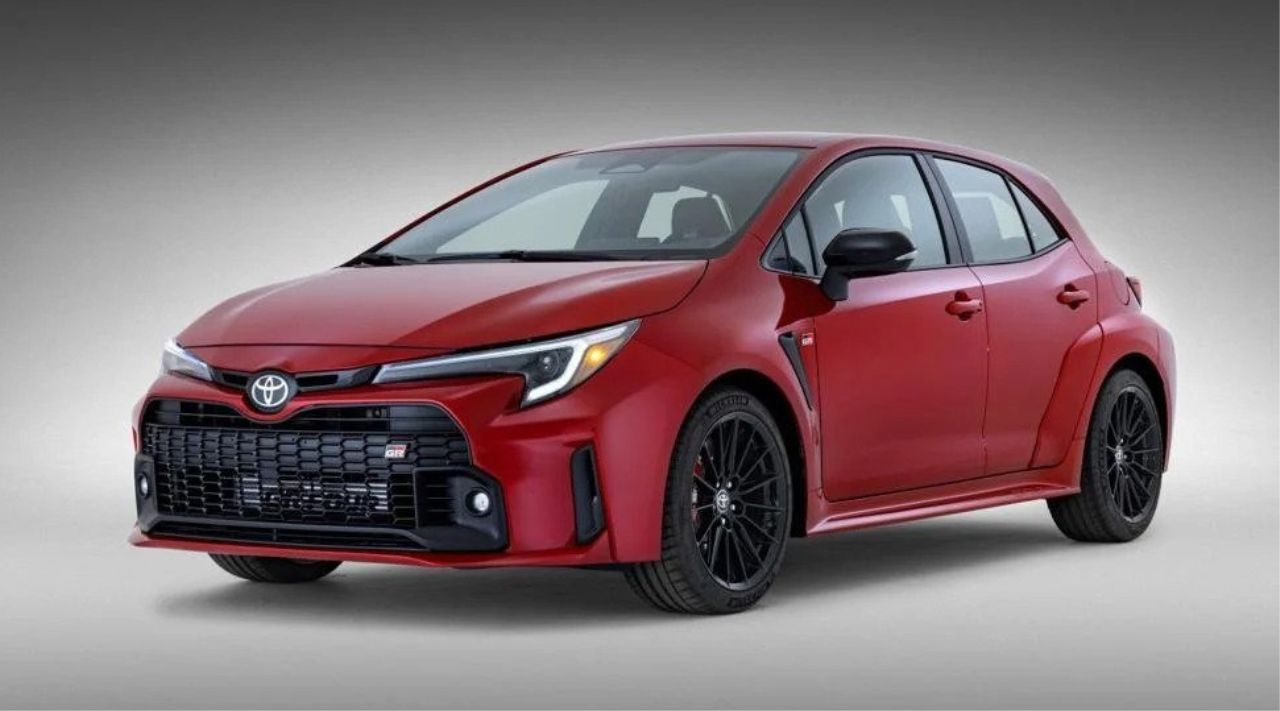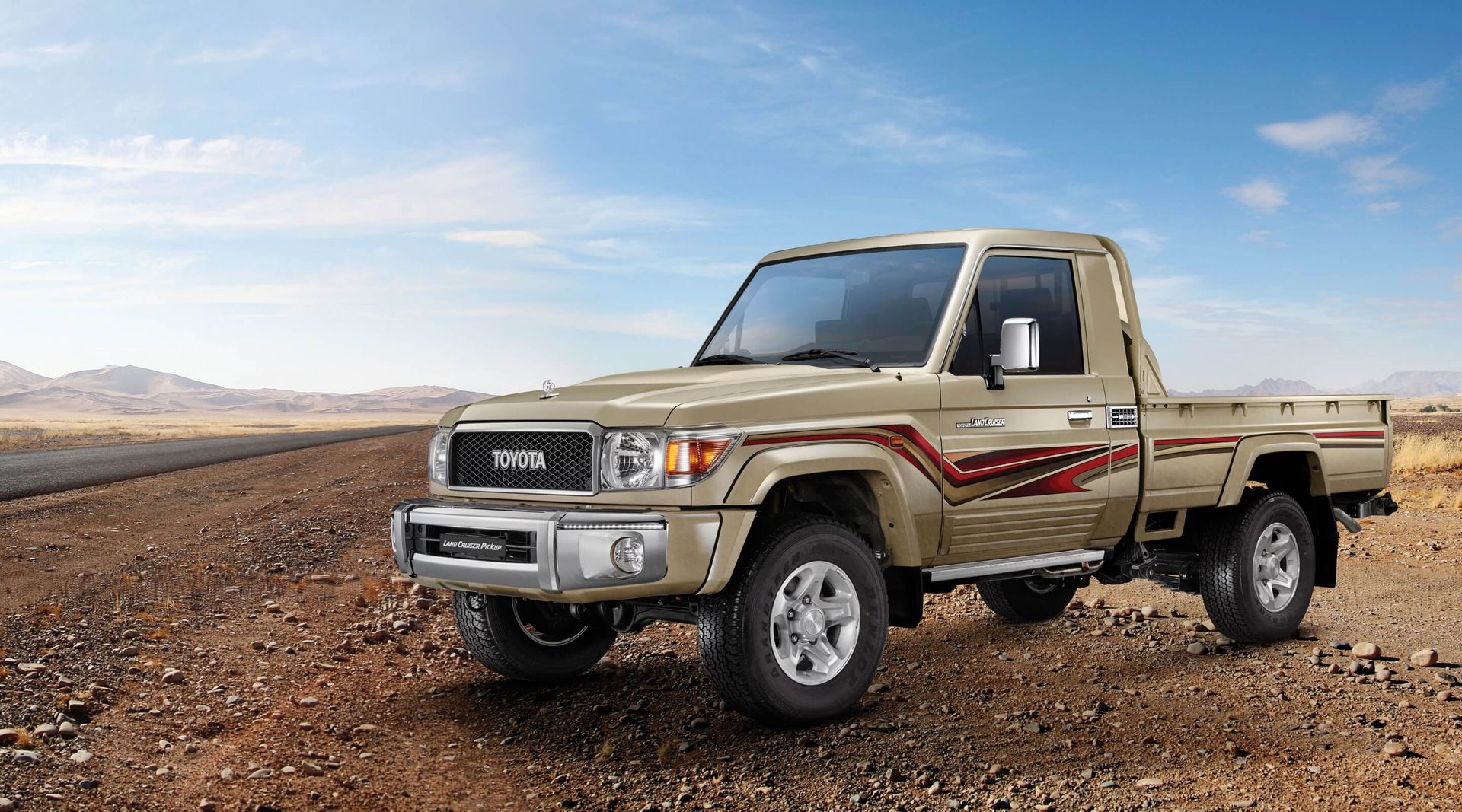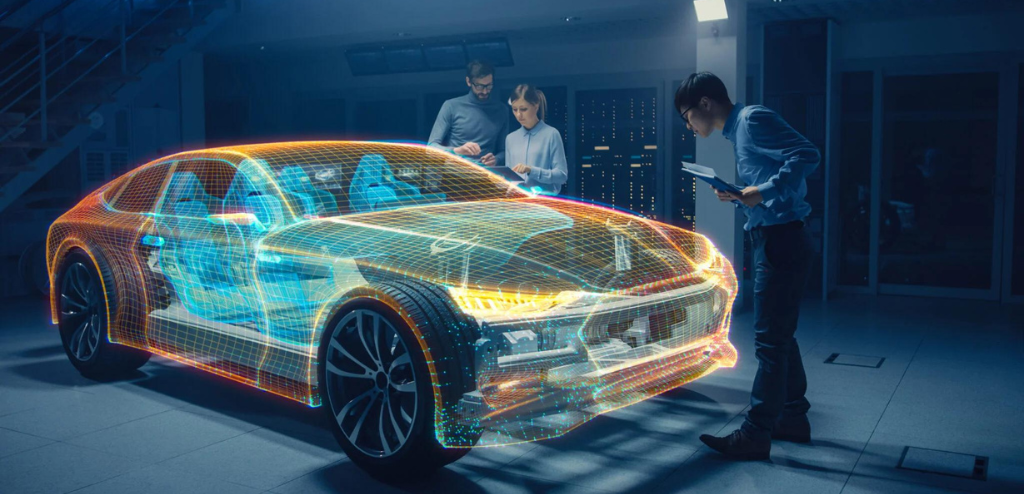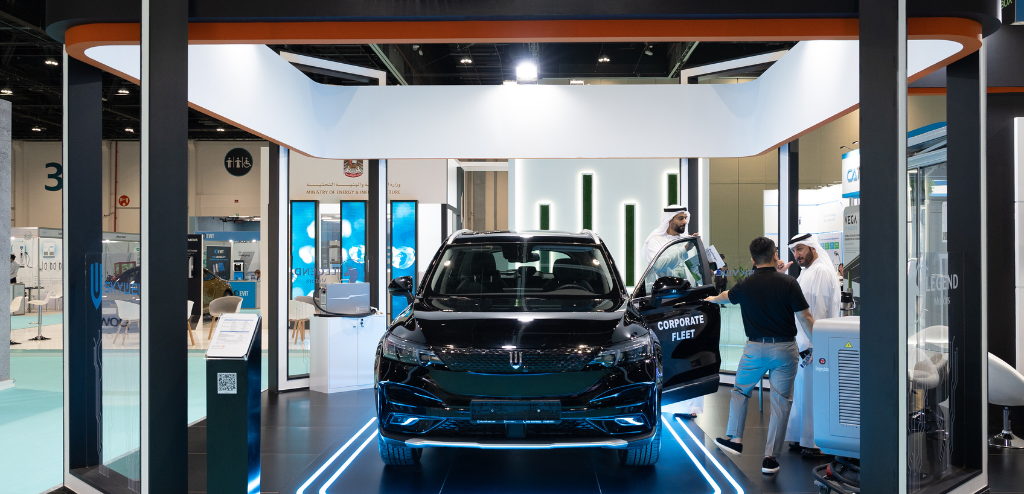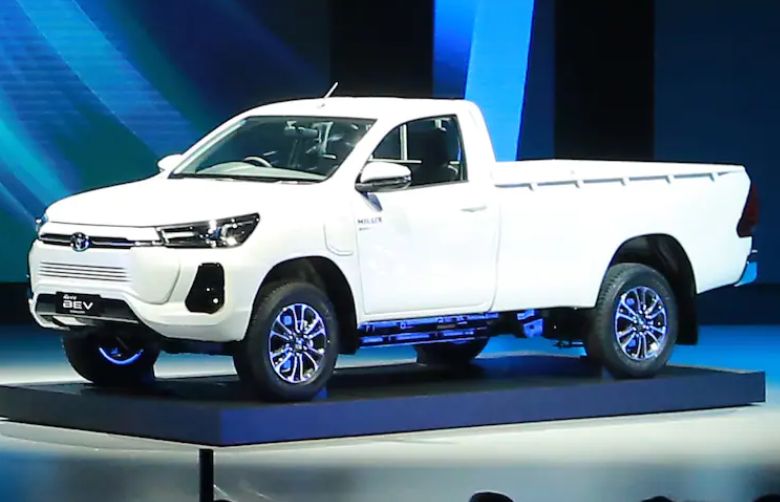
Toyota’s First-Ever All-Electric Pickup Truck

The first thing you should understand about Toyota's first all-electric pickup truck is: this ain't your neighbor's Tacoma. Toyota just unveiled the Hilux Revo EV concept in Thailand, and it's a very different sort of truck, built for the rest-of-world markets that differ greatly in how and why they use and buy these pickups. For most countries, pickups are purely commercial vehicles, aimed at farmers, tradespeople, and businesses—they're too large, inefficient, and poorly appointed to be the "do everything" vehicles American trucks are. Imagine a cab-over box truck like an Isuzu NPR—would you drive your family to the movies in one of those?
With that context set, now we can take a look at what the Revo BEV is—and isn't. Details are scarce at this point, but it's clear that the Revo BEV is closely related to the internal-combustion Hilux Revo pickup trucks. Revealed in a very basic spec, showing a charge port door on the front left fender, the truck is a single-cab, long-bed wallflower, and even has quaint work truck details such as tie-down hooks on the outside of the bed rails—a feature not common on American pickups in decades. It all hints at what Toyota expects this truck to be: a basic workhorse pickup that just happens to be electrified. Details on the powertrain and range were not available.
The truck was unveiled in Thailand at an event celebrating Toyota's 60th anniversary of operations in that country. Akio Toyoda was on hand to reveal the Revo BEV, pointedly noting that electric vehicles, in his (and his company's) opinion, are not the solution to the climate crisis.
Toyoda told the crowd, " In fact, I am often criticized in the press because I won't declare that the automotive industry should commit 100 percent to BEV. I believe we need to be realistic about when society will be able to fully adopt Battery Electric Vehicles and when our infrastructure can support them at scale." Hence, vehicles like the Revo BEV will be used strategically, in markets where the conditions make sense—and perhaps in particular where fossil fuel costs make a BEV truck that much more appealing.


